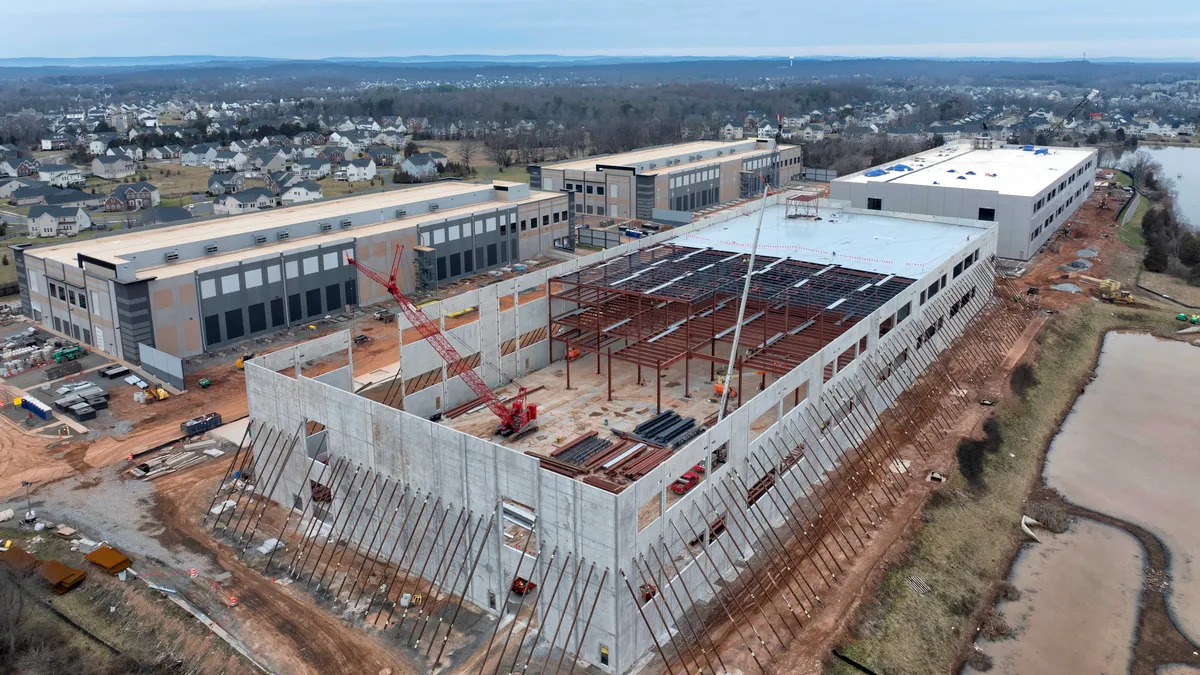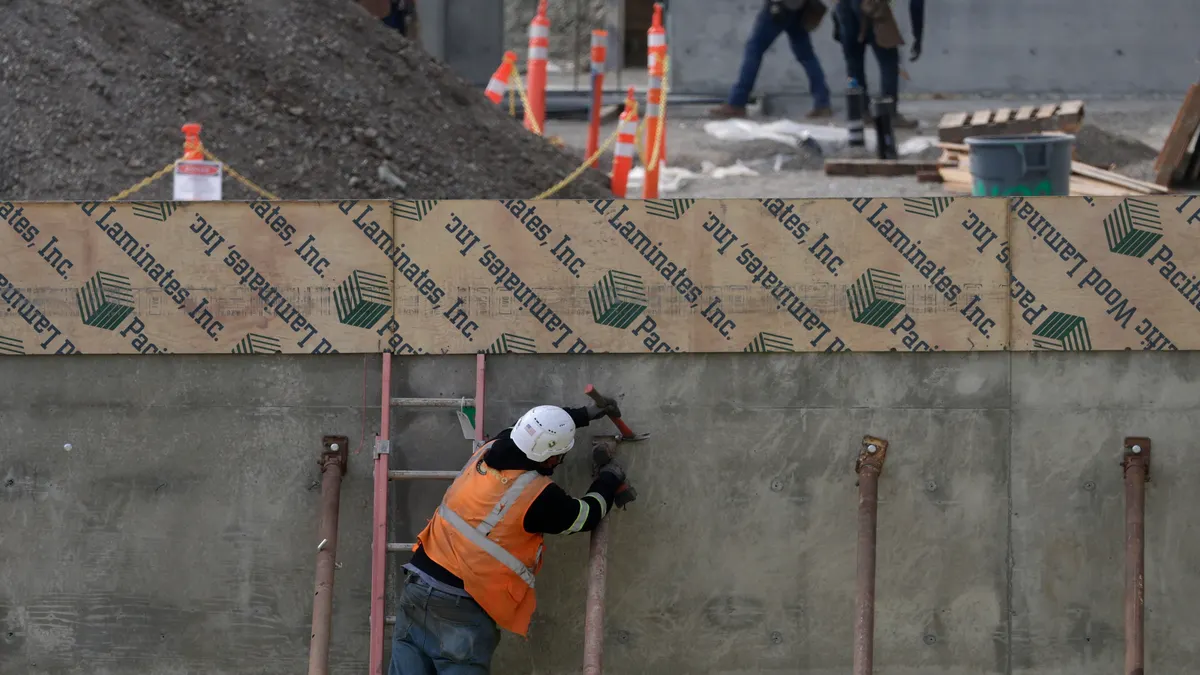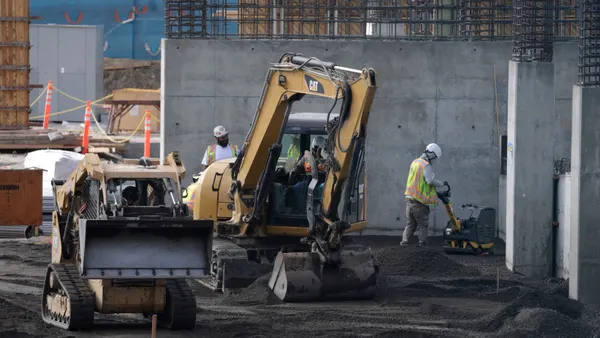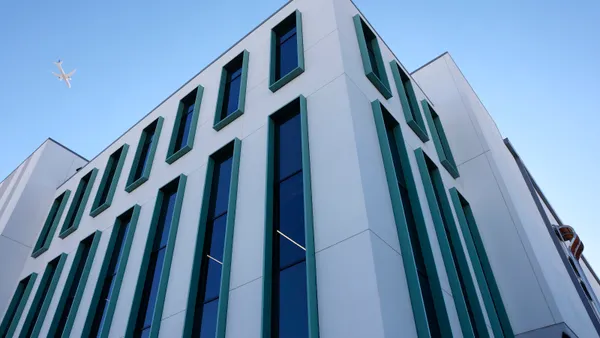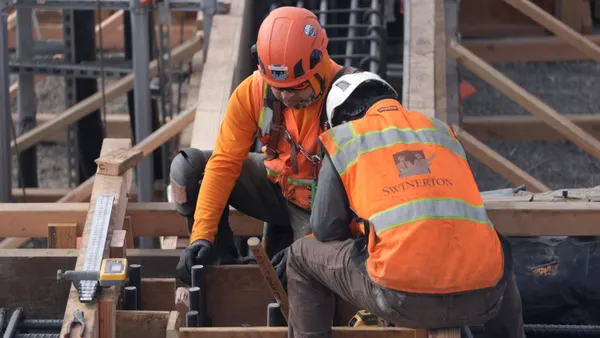Dive Brief:
- Built environment tech funding reached $4.4 billion in the third quarter, a 66% year-over-year increase bolstered by a continuing groundswell in artificial intelligence and robotics startups, according to a Nov. 5 report from Chicago-based Nymbl Ventures, a strategic investor in the built environment tech space.
- AI-based technologies snagged $2.22 billion year to date through Q3 of 2025.
- During the same period, robotics infusions topped $1.36 billion, which represents 125% year-over-year growth, per Nymbl.
Dive Insight:
The report divided funding into three categories:
- Construction tech: Technologies involved in the construction of vertical and horizontal assets that are removed at the end of a project.
- Infrastructure tech: Technologies related to the maintenance, management and optimization of horizontal assets.
- Building tech: Solutions for developers, owners, operators and other key positions, such as digital twins and carbon management.
Of the three segments, construction tech was the star of the show — investment increased 150% year-over-year to $1.25 billion in Q3, according to the report. The number is just slightly behind Q2’s $1.28 billion, the highest quarterly venture capital funding level since the first quarter of 2022.
Through the first three quarters of 2025, the sector has attracted $3.7 billion in venture capital, which more than doubles the investment seen during the same period in 2024 and already exceeds annual levels for each of the past three full years, per Nymbl Ventures.
The report also took care to flag the growing involvement of post-Series A investments in the lifecycle of startups. Larger Series B and later-stage rounds made up over $1 billion of Q3’s total contech investments, which translates to 80% of Q3 investments, per the report.
Construction firms themselves have also begun to gravitate toward startups at the Series B and later stages, tapping more mature products that can tackle actual jobsite problems.
“This reflects the project-based validation process unique to the construction industry, where demonstrating product efficacy and usability requires real-world deployment cycles on construction projects that can take anywhere from four months to more than a year,” the report noted.
The sector recorded a record 24 exits — the stage where initial investors cash out — during Q3, all through acquisitions, per the report. The moves line up with an upswing in M&A activity across the construction industry, which has also touched contractors and consultancy firms. The exit volume is driven largely by distressed acquisitions of startups in the early stages.
“This trend points to a consolidating startup market in which strategic corporates, rather than traditional VCs, are increasingly shaping the next wave of innovation,” the report stated.
Taken together, the numbers point to a new phase in funding for construction’s tech stack, one where proven solutions reign over the potential of possibility.
“Overall, 2025 marks an inflection point for the built environment’s venture landscape—transitioning from speculative exuberance to strategic maturity, with capital concentrating around scalable, data-driven, and AI-enhanced solutions that promise measurable ROI across the construction value chain,” per the report.





